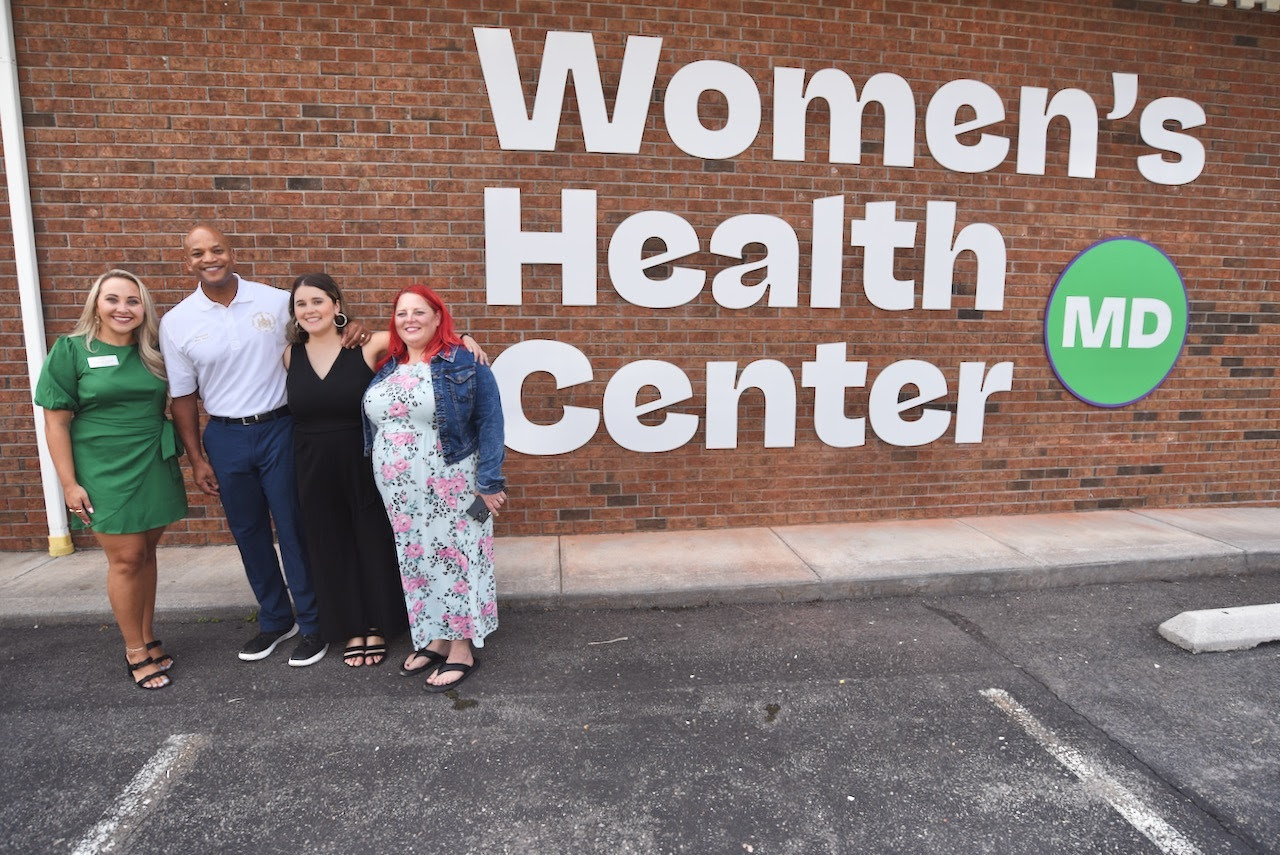West Virginia is part of a so-called “abortion desert,” but a clinic with ties to the Mountain State is opening just over the border.
The Women’s Health Center of Maryland in Cumberland will see its first patients on Sept. 13 to provide abortion services to patients across central Appalachia.
Originally, the clinic was set to open this summer, but some contractor timelines set the renovation back.
Katie Quiñonez, executive director of the Charleston-based Women’s Health Center of West Virginia, will serve as executive director of the new Maryland clinic.
“Pretty standard for renovations, they typically always take longer than you expect,” Quiñonez said, referencing the delay in opening. “And as abortion providers, we often do what feels like impossible, so we can become pretty ambitious. And we might have set an early goal.”
By opening in Maryland, the clinic will be able to employ physicians who are licensed in states with less regulation, easing access to abortion services.
“We know that there are a large number of doctors in Maryland and regionally that are interested in providing abortion care in the state of Maryland just because where Women’s Health Center of Maryland is opening is going to be such a key regional access point for abortion care,” Quiñonez said.
Courtesy Women’s Health Center of Maryland
Quiñonez said the clinic will be a key regional access point for people seeking an abortion near West Virginia and other states that have passed abortion bans. Even in the state of Maryland, only two abortion providers operate, and they only offer first-trimester abortions and medication abortion.
“So again, that limits access for folks who need procedural abortion and folks who need abortion into the second trimester,” Quiñonez said.
Quiñonez said that while speaking with other clinics in the planning process of the Women’s Health Center of Maryland, she learned clinics in Pittsburgh, another option for West Virginia patients, were scheduling out six weeks ahead of time.
“So it’s really our sincere hope that Women’s Health Center of Maryland will be that regional access point for abortion care and hope to alleviate the intense demands the existing abortion providers that have been able to continue to provide that care in their states,” Quiñonez said.
The clinic will not only offer abortions, but comprehensive reproductive healthcare like contraception, annual exams, breast and cervical cancer screenings, STI testing and treatment, pregnancy and parenting support and gender-affirming hormone therapy.
“The Women’s Health Center of Maryland will be the western most abortion provider and gender-affirming hormone provider in the state of Maryland,” Quiñonez said. “And it will be the only nonprofit reproductive health care center in mountain Maryland.”
A bill passed during the 2023 West Virginia Legislative session outlaws West Virginians under 18 from being prescribed hormone therapy and fully reversible puberty blockers. It also bans minors from receiving gender-affirming surgery, something physicians say doesn’t happen in West Virginia anyway.
Unlike measures passed in other states, however, West Virginia’s law contains a unique exemption: It permits doctors to prescribe medical therapy if a teenager is considered at risk for self-harm or suicide.
Under the law, which will take effect in January 2024, a patient can be prescribed puberty blockers and hormone therapy after receiving parental consent and a diagnosis of severe gender dysphoria from two clinicians, including a mental health provider or an adolescent medicine specialist.
“Even if the only service that Women’s Health Center of West Virginia offered or that Women’s Health Center in Maryland will offer was abortion care, that would still be valid and necessary, because abortion is part of comprehensive reproductive health care that everyone should have access to,” Quiñonez said. “But the reality is that, much like many other independent clinics across the country that are providing abortion care, we are also providing other comprehensive reproductive health care”
The Women’s Health Center of West Virginia continues to provide cancer screenings, contraception and HIV and STI testing among other reproductive health care services.
Appalachia Health News is a project of West Virginia Public Broadcasting with support from Charleston Area Medical Center and Marshall Health.
